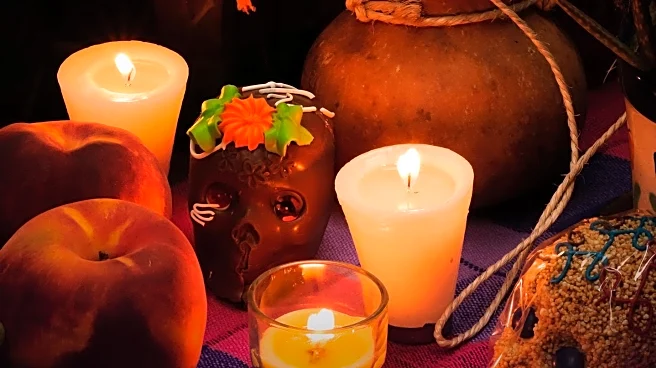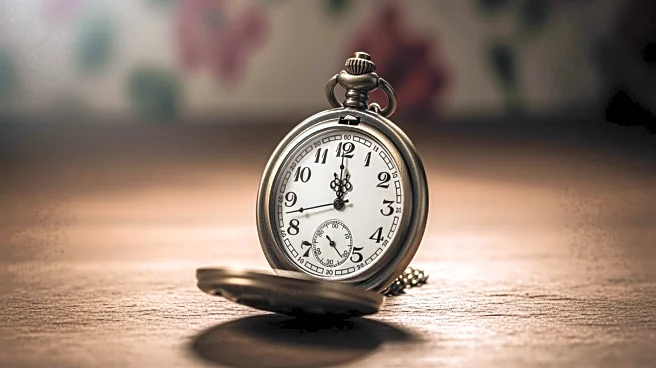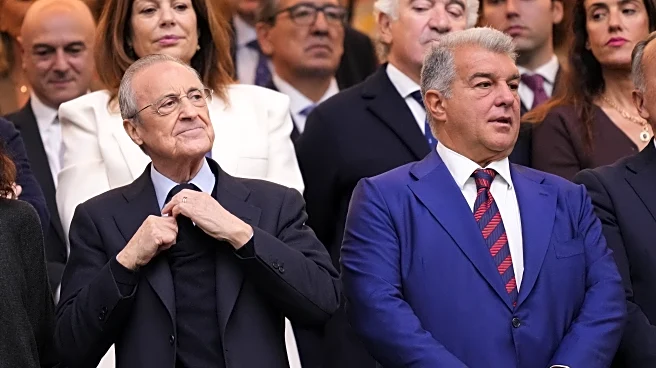What's Happening?
The annual Dia de los Muertos celebration in San Pedro has taken on a deeper significance in 2025, particularly for Los Angeles' Latino community. This year, the event is marked by a heightened sense of
reflection and cultural expression amid a challenging period for the community. The celebration, traditionally a time to honor deceased loved ones, has become a focal point for communal solidarity and cultural pride. Laurie Perez reports that the event is not only a cultural festivity but also a moment for the community to come together and address broader social issues affecting them.
Why It's Important?
The Dia de los Muertos celebration in San Pedro serves as a vital cultural touchstone for the Latino community in Los Angeles, especially during a year marked by social and economic challenges. It provides an opportunity for the community to express their heritage and resilience, fostering a sense of unity and identity. The event highlights the importance of cultural traditions in maintaining community cohesion and offers a platform for addressing issues such as immigration, economic disparity, and social justice. As such, it plays a crucial role in empowering the Latino community and promoting cultural understanding within the broader society.
What's Next?
Looking ahead, the Dia de los Muertos celebration in San Pedro may continue to evolve as a significant cultural and social event. It is likely to attract increased attention from local leaders and organizations seeking to support the Latino community. The event could also inspire similar celebrations across other communities, emphasizing the importance of cultural heritage in addressing contemporary social issues. Stakeholders may explore ways to expand the event's reach and impact, potentially incorporating educational and advocacy components to further engage the community and promote positive change.
Beyond the Headlines
Beyond its immediate cultural significance, the Dia de los Muertos celebration in San Pedro may influence broader discussions on cultural preservation and community empowerment. It underscores the role of cultural events in fostering dialogue and understanding among diverse groups, potentially leading to increased collaboration and support for minority communities. The celebration also highlights the ethical importance of respecting and valuing cultural traditions, which can contribute to a more inclusive and harmonious society.










